East Africa has had the honour of hosting the African Writers Conference (AWC) for the second time since its inception. While Kenya hosted the first, this year, writers gathered at the beautiful coast of Dar es Salaam, Tanzania. The Department of Literature of the University of Dar es Salaam partnered with Writers Space Africa (WSA), a merger that gave a new light and path of opportunities and possibilities, for both parties and the audience as well.
This year’s 2-day conference, from 8th to 9th October 2021, was themed The Future of African Literature, with the sub-theme African Literature as a Vehicle for Cultural Renaissance, driving the conversation of the Writers Mingle. The Writers Mingle – fourth of its kind, was held on the first day of the conference at Alliance Françoise in Upanga, Dar es Salaam.
The Mingle began with a brief of what Writers Space Africa (WSA) and African Writers Development Trust (AWDT) are and what they do. The panellists were then introduced by Lubacha Deus, coordinator of the Tanzania chapter of Writers Space Africa (WSA-TZ). The podium was then taken over by Anthony Onugba, founder and president of WSA, who gave a brief history of the Writers Mingle before moderating the discussion.
The theme was set in motion by an extremely significant question – What is African literature? which birthed quite interesting answers. While Malama Katulwende from Zambia was of the view that African literature is literature written by anyone about Africa, expressing the cultural mindset in written texts, Mkuki Bgoya argued that African literature is literature written by Africans. To most panellists, it didn’t matter who is writing; so far as they are writing about the experiences of Africans within or outside the continent, it qualifies as African literature.
Read – Telling Our Stories Ourselves: The African Identity – 2020 African Writers Conference
In recent times, the promotion of African literature in the world has been on the rise. A phenomenon that raised the question Why African culture? Panellists came up with several points such as; to have a sense of ownership and pride, spreading awareness about our unique culture, adding value to the literary world, breaking stereotypes, recognition, and motivation. And so, now that there’s somewhat an equal platform for telling our stories, it is our responsibility as Africans to make the world catch up to us and experience our dreams and realities the way we do.
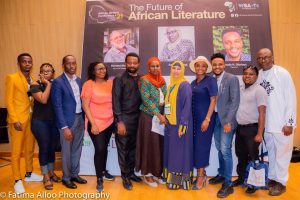
Some participants at the AWC
For such noble courses, it was difficult to dismiss the role of prize money in literature. Does it take away the genuineness of literature? Charlotte Makala expressed her concerns that prize money can make a writer influence their writing just so they can win. She insisted that there were ways a writer can write for money and still be authentic. All the other panellists agreed that money shouldn’t be first priority when it comes to writing. This is because having such a mindset from the beginning will make it difficult for a writer to find the balance between the truthfulness of the individual voice in their writing and popular demand.
Click to watch the Writers Mingle 4 – AWC Day 1
Seeing as the popular demand plays a significant role in the genres and themes that writers chose to delve into, a question was directed to Mkuki Bgoya on whether publishing houses have a criterion for selecting books. He replied by stating that the wide range of books that publishing houses receive, make it difficult to subscribe to a particular set of rules. However, generally, things like relevance in terms of theme and characters, craft, and clarity of the voice are important. Also, since it is a business, publishing houses often make decisions depending not only on whether the book has an audience, but also if that audience is willing to buy. All of these are investment strategies.
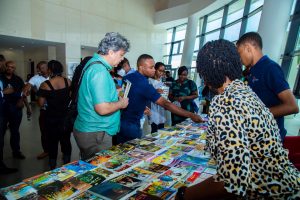
Book exhibition stand at the AWC
Another question was raised about how much of our culture should be in literature. In Ng’winula Kingamkono’s opinion, it matters how we package our cultures in our stories. The food, music, mythologies… Writers should go all the way and write about anything and everything. That way, our identity will always come out in our writings. Mkuki added, “When writing, do not corner yourself into fitting into an idea of Africa that is already there.”
After such an eye-opening discussion from the panellists, the audience engaged in a Q&A session with them. The first and most concerning question posed was how to make money from writing. What came up was that writers should figure out strategies to make writing work for them; to find alternatives like building a brand and monetizing it, or using technology to build a strong fanbase. Also, they were advised to put effort into the craft and be open to the idea that as writers, they might and will face rejections, but they should always try to work their way up and never quit.
Read – Breaking stereotypes in Nairobi – 2019 African Writers Conference in Perspective
There was also a question on protest writing and whether such writers should keep taking risks, considering the comments from critically concerned individuals about the importance of censorship in this kind of writing. The suggested solutions were to write on media that are not yet considered as a threat. Safety and comfort are personal, and so the writer will have to decide how far they are willing to go in/for protest writing.
On the second day – 9th October 2021, the AWC was held at the new library hall of the University of Dar es Salaam. It began with an opening introduction from Asha Mtwangi, the MC of the conference. This was followed by the national anthem and then the welcoming of guests. Dr Rose Upor, principal of the College of Humanities, called the conference monumental. She further stated that the theme was timely as it raises a question of the role of an African writer in a changing world and the role of African Universities in preparing future writers. She then expressed her gratitude to the University of Dar es Salaam and the organizers of the AWC, especially to Nahida Esmail who was at the forefront throughout preparations and requested that the 2022 edition of the African Writers Conference be held again at the University.
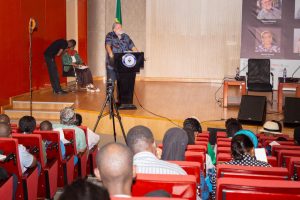
Richard Mabala, Keynote Speaker at the AWC
After Dr Rose Upor’s speech, Dr Eliah Mwaifuge of the Department of Literature in the university spoke on how important this conference is to the Department and how it has inspired the possibility of starting new courses like Publishing, Creative Writing, and African Literature. He said that it is also an opportunity for the department to learn more about writing and the challenges associated with it. Lubacha Deus then took over the stage to welcome guests and gave a brief of the events that were to unfold. Right after, Esther Mngodo gave a phenomenal poetry performance.
An introduction about AWC was given next by Anthony Onugba. He equated his experience of travelling with a creative process – a journey, that hopefully continues to get better. He stated that the journey of AWC started in 2018 in Abuja, Nigeria, and in 2019 it was held in Nairobi, Kenya. Southern Africa took the challenge and honour of hosting the conference in 2020 with Lusaka, Zambia as host. And now the conference is back in East Africa, but this time, in Dar es Salaam, Tanzania.
Read – 2018 African Writers Conference Lights up Abuja, Nigeria
During his keynote speech, Richard Mabala described the moment as a ‘frightening honour,’ to be able to spearhead such a groundbreaking experience. His was an unforgettable speech. He challenged the idea of African literature by stirring the audience to think outside the confines, and subsequently introduced the classes of African literatures as a broader perspective that aims at dissolving the polarities between how the older generation think of African literature versus how the new generation perceives it. Inclusivity of all is the key ingredient.
In addition to this, he said it was impossible to encapsulate the whole of African essence into one book. He also stated the notable classes to African literature which include the following:
- Literature that prioritizes morals and messages. This kind of literature has unfortunately taken away the excitement and beauty of the art and tilted a bit away from the entertainment.
- Serious literature vs Popular literature. The serious literature focuses more on important issues that are relevant to society; it aims at exposing societies’ ills and sometimes suggesting solutions. Popular literature on the other hand is trendy, exploits readers’ interests in a particular time, and feeds that interest. It changes according to what is trendy.
- Un-African African literature. This is the kind of literature that, although written by African writers, has been branded un-African by those who hold certain values, therefore everything written outside those values is considered to be controversial. A typical example is those with LGBTQ themes.
- Children’s literature by children-writers.
- Language box literature. The kind of African literature that is originally written in a popular, marketable language (in our case the English language), but in the process it loses the uniqueness and authenticity of the cultural experiences that the readers are meant to experience.
Regarding the future of African literature, Mabala sees it bright as ever. However, the literary community needs to be intentional and determined to push African literature forward. In doing so, he suggested the following:
– Publishing and marketing local writers.
– Enhancement in the protection of writers’ rights.
– Finding an alternative medium for written works.
– Great support from the governments.
He concluded his speech with a quote from Frantz Fanon which said, “Each generation must discover its mission, fulfil it or betray it in relative opacity.”
Another Q&A session followed immediately after Mabala’s speech, and the first question asked was, ‘What can publishers and writers do to create a reading awareness and champion the publishing of young writers?’ Suggested solutions were to revitalize imagination, reach out to more people through social media campaigns, visit schools, start initiatives like UWARIDI, etc.
Read – Announcing the 2021 African Writers Awards Jury
The second question was about the role of the government in promoting the reading culture and how to make reading attractive to readers. Mabala replied by saying that it starts with writers first. Writers need to write great stories before the government, publishers, readers or anyone else can support their work. It is great storytelling that will eventually lure more people into the reading community.
Another question was, ‘how do we, as writers balance between the educational element of storytelling and the entertainment element. How can we re-introduce the fun and excitement in storytelling that is now being overshadowed by the focus of the message?’ According to Mabala, the truth and the balance is, any interesting book has a message. Just keep the fun and excitement flowing, readers will find the message therein.
The Q&A session came to an end with the question of whether there’s a price befalling Africans for telling African stories. To this, Mabala answered, “African stories matter, we should tell it all and not add to the danger of a single story. The price is in boxing ourselves into a single identity, the freedom is in telling our multiple identities.”
The Q&A session was followed by a lunch break, and a panel discussion was next. With Neema Komba moderating the discussion, she first introduced the panellists – Princely H. Glorious, Dr Neema Laizer, and Hermes Damian Salla – to the audience followed by the question – How is the storytelling of African stories being done?
The answers which came up were that the predominant narrative is told by non-Africans and that Africans need to tell their own stories because no one else will ever tell these stories as accurate and as authentic as African voices will. Also, the African stories told by non-Africans usually tread on stereotypes. Such stories are not necessarily untrue, but the effect of handpicking specific narratives to represent Africa as a whole can go a long way to infiltrate generations to come. This includes leaving certain marginalized groups unrepresented and fading off of certain cultures. Research is therefore significant to anyone who wants to cover an African story.
Read – Announcing the 2021 African Writers Awards and Wakini Kuria Prize Winners
The second question was – Why are our stories not known? This led the discussion on distribution and readership. There has to be a system that is more corporative and motivating, with each part putting in the effort to not only grow individually but also collectively. This means, writers have to write great stories, publishers, and distributors need to do their jobs as well. Moreover, we should not limit our idea of distribution to books and readership alone. We can meet the audience where they are by creating other media that resonate with them.
The panel also discussed the role of Institutions in developing writers from an early stage. It was agreed that mentorship, encouragement, and promotion of the writing and reading culture, are among the steps that need to be taken when it comes to developing writers.
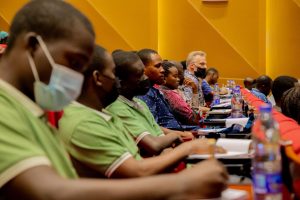
Some participants at the AWC
The closing question of the panel discussion was, what excites you about the future of African storytelling? Panellists gave out the following answers;
Digitization. This allows for an easy formation of literary platforms, readerships, and also fallen barriers to publishing as writers won’t necessarily have to go through traditional publishing to get their voices heard. Other advantages of digitization include lower risks of distribution and cost of production.
Heterogeneousness, and the role African languages play in contributing to African literature in erasing stereotypical narratives that have been popularized. By investing in translation, more indigenous voices can be raised without compromising the authenticity that comes with works being written originally in African languages. This will also bridge the gap of which class of readers have access to what materials. We can’t talk about the future of African literature without appreciating our languages and accepting that they can be enough.
In all of these, it is important to remember that this desired ideal future comes with the price of fighting. As literary enthusiasts, we have to be ready and willing to fight and deconstruct the current systems that are holding us back.
From the audience, a question was asked on whether monetarily the government is playing its part in supporting and encouraging local writers. According to Princely H. Glorious from Ona Stories, support is good, but writers should not just sit and wait for help when we can make writing work for us. There is a need to find alternatives by pivoting our writing into something that can be monetized. That way we can fund our initial path of passion.
The next session was the presentation of awards. Feza school awarded five of their inspiring young students for their contribution to literature. Accomplishing such dreams at a young age is truly commendable and cannot go without recognition. The following are the awarded students and their works:
- Elvyn Epaphras Kilasa – This is my Story
- Russel Mutahaba – Change your World
- Doreen Ngemera – Alize Unlocked Diary
- Larry Matayo – On Avery’s Tides
- Davis Andrew Bwana – A Century of Poems
African Writers Awards followed, with the following winners scooping awards for each category.
- Adedoyin Adetutu, Nigeria – Creative Non-Fiction
- Clara Wanjira Kariuki, Kenya – Poetry
- Gordon B. Away Anjili, Kenya – Drama
The Wakini Kuria Awards for Children Literature was last, with the following writers emerging as winners.
- Makhago Peter, Uganda – The Millionaire Orphan
- Stephanie Chizoba Odili, Nigeria – Tea time with Tito
- Nathaniel Z. Mpofu, Zimbabwe – The Enchanted Pen
After the awards, the stage was taken by nine-year-old Maria, who gave a breathtaking acrobatic show. Afterwards, the MC, Asha Mtwangi, listed the following questions in line with the theme of the conference, to help writers and the literary community navigate the future of African literature and start conversations about it even outside the AWC.
- What is the future of African languages in African literature?
- How can we use literature to shape/change the future?
- What is African literature?
- Is there a place for colonial literature in Africa for the future?
- What influences African literature?
- Are African literature and African storytelling the future of literature?
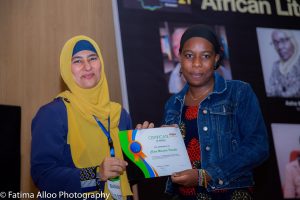
Nahida Esmail presenting the Award certificate to Clara Wanjira Kariuki from Kenya
This was followed by a breathtaking singing and poetry performance by Caroline.
The closing ceremony was done by Nahida Esmail, who on behalf of AWC, gave the vote of thanks to all sponsors, partners, supporters, and the audience who cleared their schedule for the whole day to attend the conference. Most importantly, she thanked Anthony Onugba for allowing every one of us to be part of his dream of uniting African writers.
The conference officially ended with a joggling hats’ performance from Deborah.
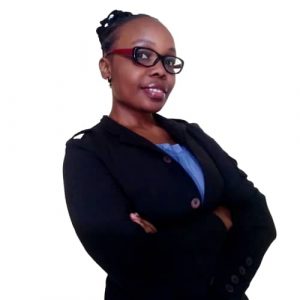 Christina is a literary enthusiast and a lover of art from Dar es Salaam, Tanzania. She writes poetry, flash fiction, and short stories. Among her published works ‘The Bookstore’, a short story published in the Kalahari Review.
Christina is a literary enthusiast and a lover of art from Dar es Salaam, Tanzania. She writes poetry, flash fiction, and short stories. Among her published works ‘The Bookstore’, a short story published in the Kalahari Review.
In 2020, she served as an editor of the WSA magazine. This is a monthly literary magazine published by Writers Space Africa. She was also a second runner up for a creative writing competition hosted by Shuzia magazine in February 2020 and was shortlisted for the Wakini Kuria Children’s literature awards in 2019.
Currently, she is the assistant Coordinator for Writers Space Africa (Tanzania Chapter), and a poetry editor for Poeticafrica magazine.
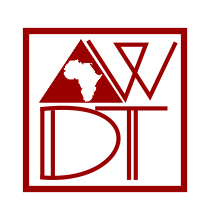
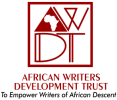
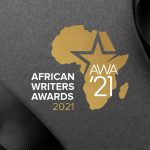
This was a great event. I felt very honoured to be a participant.
I was so honored to participate virtually. I am excited to hopefully attend in person in the future. I want to gather some links to purchase some books since I couldn’t attend the exhibition.
How does one get the photos? I was happy to be part of the event but finding it very difficult to access the photos.
With all certainty, as stated by Mr Mabala, the future is bright; we have plenty of fish but no pond. Some issues have the potential to derail the future of African Literature if measures are not taken to curtail them. For example, it is not easy to publish a book and get known by using a local Publisher; it is also not easy for a Publisher to make money by publishing for a local market.